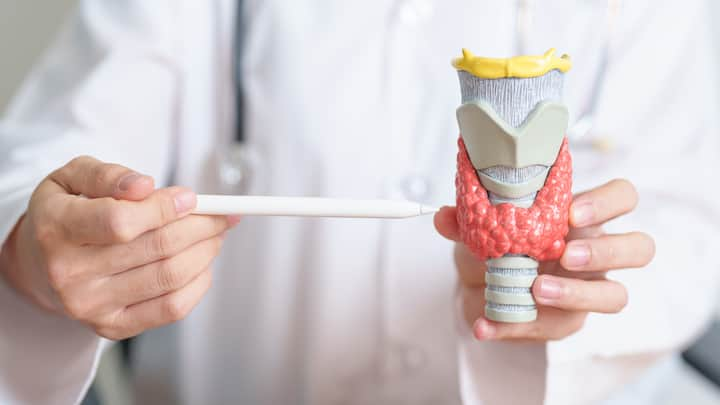Stress and anxiety: Chronic stress can disrupt your hormones, disrupt your daily routine, and even damage your hypothalamus, the area of your brain responsible for regulating your period. Stress can lead to illness or rapid changes in body weight that can disrupt your menstrual cycle. If you suspect stress is interfering with your menstrual cycle, consider relaxation techniques and lifestyle changes. Chronic stress can also have an impact on other health issues you have, so dealing with it on your own or with the support of a medical expert is a vital aspect of taking care of your overall health. (Image source: Canva)

Polycystic Ovary Syndrome (PCOS) – People with PCOS have a hormonal imbalance that affects their overall health and appearance, as well as developing ovarian cysts. This can cause a person’s menstrual periods to become erratic or stop altogether. PCOS affects up to 10% of women of reproductive age and can cause enlarged ovaries with clusters of tiny, benign cysts. (Image source: Canva)

Excessive exercise: Amenorrhea is common among female athletes who exercise intensely. Intense activity causes the body to release stress hormones, which can disrupt the synthesis of reproductive hormones and lead to irregular or late periods. Long-distance running and intense dancing are more likely to cause amenorrhea than other types of exercise. (Image source: Canva)

Hormonal contraception: Hormonal contraception works by inhibiting ovulation, so a person’s menstrual period may be altered, come early, late, or stop altogether. (Image source: Canva)

Obesity: Just as being underweight can lead to hormonal abnormalities, being overweight can lead to irregularities. Obesity can lead to overproduction of estrogen, an important reproductive hormone. Too much estrogen can disrupt your cycle and perhaps stop your periods altogether. (Image source: Canva)

Thyroid problems: Late or missed periods can be caused by an overactive or underactive thyroid gland. The thyroid gland regulates the body’s metabolism, so hormone levels can be disrupted. Thyroid problems are usually treated with medication. After therapy, menstruation is likely to resume its normal cycle. (Image source: Canva)

Overproduction of prolactin during breastfeeding: Prolactin is a hormone that the body normally produces during breastfeeding. It can affect menstruation and is the reason why most breastfeeding people do not have menstrual periods. Menstrual periods usually return when a person stops breastfeeding. A milky nipple discharge could indicate that the body is producing an excessively high level of prolactin in people who are not breastfeeding. (Image source: Canva)

Contributions from: Dr Archana Dhawan Bajaj, Gynaecologist, Obstetrician & IVF Expert, Nurture IVF Clinic, New Delhi (Image source: ABP Live AI)
Published on: 12 Sep 2024 15:07 (IST)
Disclaimer:
The information contained in this post is for general information purposes only. We make no representations or warranties of any kind, express or implied, about the completeness, accuracy, reliability, suitability or availability with respect to the website or the information, products, services, or related graphics contained on the post for any purpose.
We respect the intellectual property rights of content creators. If you are the owner of any material featured on our website and have concerns about its use, please contact us. We are committed to addressing any copyright issues promptly and will remove any material within 2 days of receiving a request from the rightful owner.

